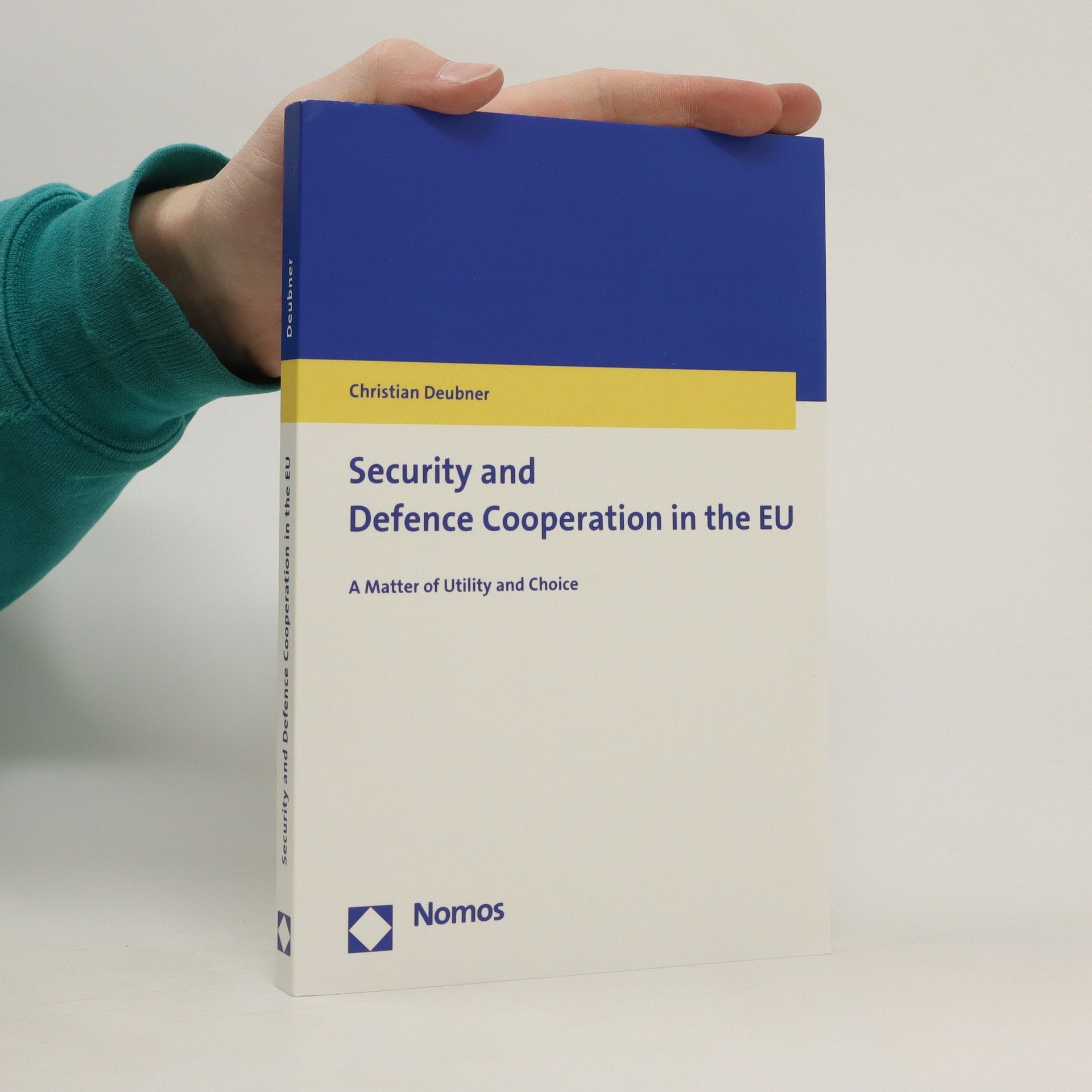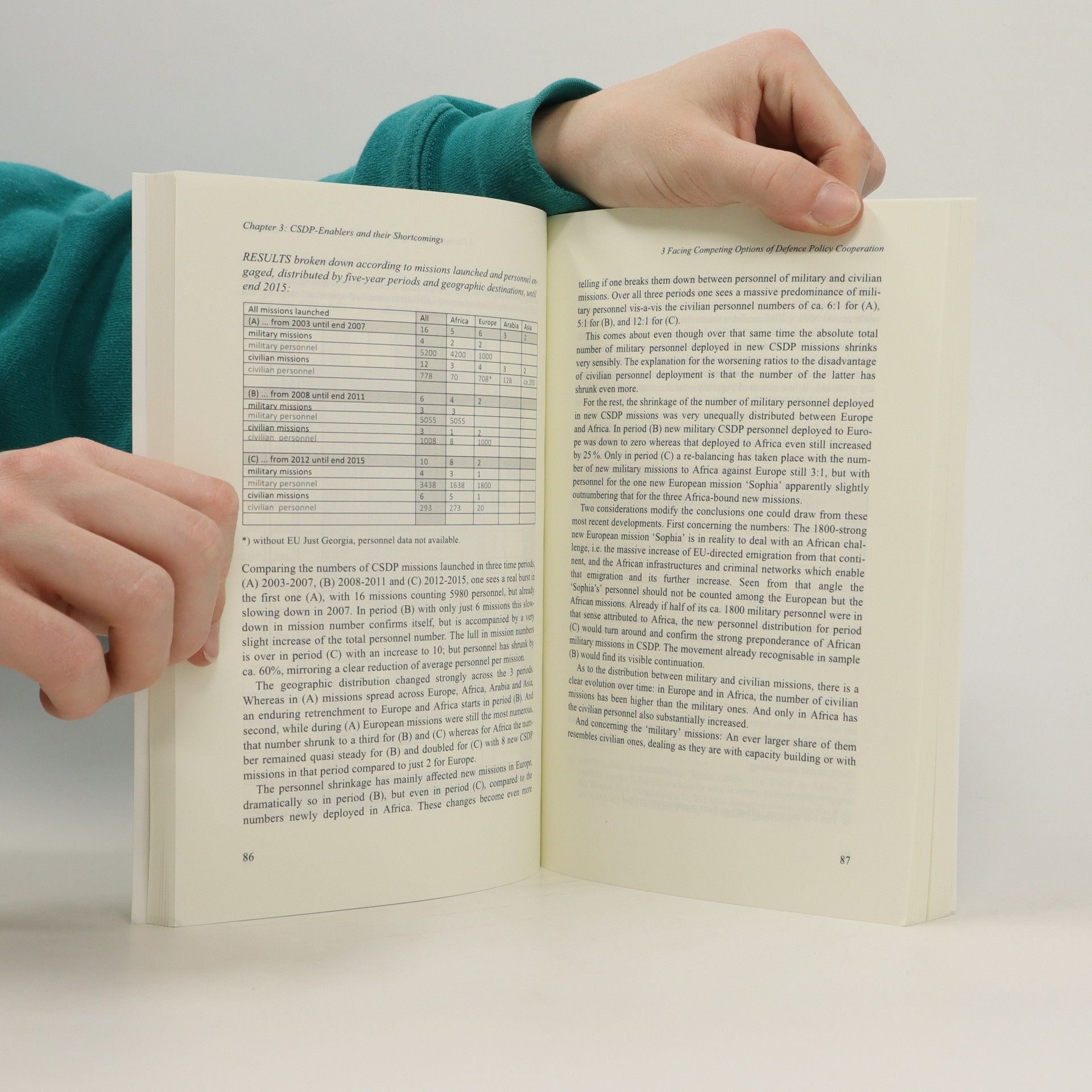Mehr zum Buch
Against the backdrop of past and present challenges, the author of this book probes the comparative utility of the EU Member States’ principal cooperation options in security and defence in terms of their scope, institutions and procedures, and the EU Member States’ choices in this respect over the past two decades. EU Member States have not demonstrated a preference for cooperation in that policy area so far and are not likely to do so in the near future either. There is no specific common purpose that would justify a significant effort to strengthen future EU cooperation on its Common Security and Defence Policy in 2017. NATO, ad hoc coalition forming and UN peacekeeping appear and will appear more useful and important for EU Member States in the medium term. In recent years observers have been struck by how much internal security threats, radical Islamist terror attacks and the Member States’ discord over migration have influenced the reorientation of the EU Member States’ external security and defence policies. In that increasingly important nexus, the author proposes ideas for a more systematic approach to research.
Buchkauf
Security and Defence Cooperation in the EU : A Matter of Utility and Choice, Christian Deubner
- Sprache
- Erscheinungsdatum
- 2018
- product-detail.submit-box.info.binding
- (Paperback)
Keiner hat bisher bewertet.



